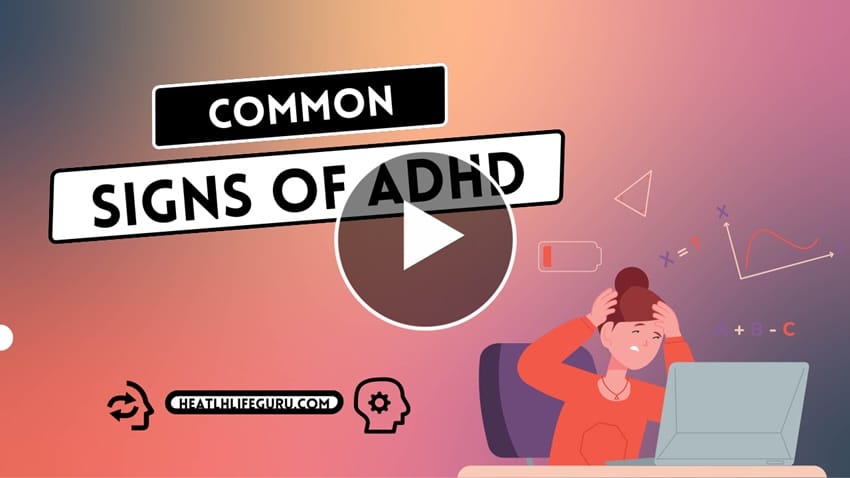The American Heart Association has recently identified a new medical condition that’s capturing the attention of healthcare professionals and the public alike. Known as Cardiovascular-Kidney-Metabolic Syndrome (CKM), this condition encapsulates the strong links between obesity, diabetes, and heart and kidney disease. Understanding CKM is crucial because it affects multiple organs in the body, including the heart, brain, kidneys, and liver. This article aims to delve into what CKM is, why it matters, and how it can be managed. So, let’s unravel the complexities of this new medical syndrome that could potentially affect millions of lives.
Contents
The Birth Of CKM

The American Heart Association, in collaboration with leading researchers, has taken a significant step in the world of medicine by identifying Cardiovascular-Kidney-Metabolic Syndrome (CKM). This new condition was brought to light to facilitate earlier diagnosis and treatment for people at high risk of dying from cardiovascular disease.
Dr. Chiadi E. Ndumele, the director of obesity and cardiometabolic research in the division of cardiology at Johns Hopkins University, led the advisory on CKM. He emphasized that the primary goal is to reduce the number of individuals progressing to heart disease, thereby potentially saving countless lives.
What Does The Condition Affect?

CKM is not just another medical term; it’s a condition that affects major organs in the body. Specifically, it has a significant impact on the heart, brain, kidneys, and liver. The syndrome is essentially a reflection of interconnected health issues that have long been treated as separate conditions.
The American Heart Association’s identification of CKM aims to change this fragmented approach. By understanding CKM as a multi-organ condition, healthcare professionals can offer more targeted and effective treatments, thereby improving the quality of life for those affected.
Why CKM Is A Game-Changer

The introduction of CKM into medical terminology is nothing short of revolutionary. Dr. Pam R. Taub, a cardiologist and professor of medicine at the UC San Diego School of Medicine, refers to the concept of “organ cross-talk” to explain the intricacies of CKM. This means that the organs affected by CKM are not operating in isolation; they are intricately interacting with each other.
Recognizing this interaction could fundamentally change how doctors approach the treatment of patients with multiple chronic conditions. It opens the door to more holistic treatment plans that consider the body as an interconnected system rather than a collection of individual parts.
How Is It Diagnosed?

Early diagnosis is a cornerstone in the management of CKM. Detecting the syndrome in its initial stages can prevent the progression of chronic conditions that could otherwise lead to severe complications. For instance, early kidney disease can be detected through markers in a patient’s urine sample, which is crucial for preventing the progression of chronic kidney disease.
The importance of early diagnosis cannot be overstated. It allows healthcare providers to initiate timely interventions, such as lifestyle changes and medications, that can significantly improve a patient’s quality of life and even extend it.
Stages Of CKM

Understanding the stages of CKM is crucial for both healthcare providers and patients. The condition has been categorized into four stages, ranging from Stage 0, which involves no risk factors for heart disease, to Stage 4, which includes diagnosed heart disease, excess body fat, metabolic risk factors, or kidney disease. Each stage has its own set of treatment options, making it easier for doctors to tailor their approach.
The treatment options vary depending on the stage. For example, Stage 1 focuses on lifestyle changes with a goal of at least 5% weight loss, while Stage 4 may require medications for heart and diabetes, as well as testing for narrowing of the arteries. Knowing the stage helps in formulating a targeted treatment plan.
The CKM Spectrum

The prevalence of CKM is alarmingly high, affecting a significant portion of the adult population. More than 90% of adults fall on the CKM spectrum, mainly driven by record levels of obesity and Type 2 diabetes. The Centers for Disease Control and Prevention estimates that 41.9% of adults and 19.7% of children in the U.S. are obese, and more than 37 million adults have diabetes.
This high prevalence underscores the urgency for both healthcare providers and the general public to take CKM seriously. Early diagnosis and treatment are not just medical jargon; they are imperatives for a healthier future.
Treatment And Management

Managing CKM involves a multi-pronged approach that includes both pharmacological and lifestyle interventions. New medications have been developed to treat conditions that are part of the CKM syndrome, such as kidney disease, diabetes, and obesity. These medications have resulted in decreases in cardiovascular events and have given doctors new insights into the relationship among different organs.
Lifestyle changes also play a pivotal role in the management of CKM. Significant lifestyle changes and weight loss have been shown to improve the condition. Therefore, a balanced approach that includes both medication and lifestyle changes is the most effective way to manage CKM.
The Future Of CKM

Ongoing research in the field of CKM is promising, aiming to provide more effective treatments and perhaps even cures for the conditions that comprise the syndrome. However, challenges remain, such as the cost of new medications and potential reluctance from insurance companies to cover them, especially in the early stages of the condition.
Despite these challenges, the future looks promising. The identification of CKM has already started to change the landscape of healthcare, making it more holistic and interconnected. As research progresses, it is likely that even more effective treatments will become available, benefiting millions of people worldwide.
Empower Your Health Journey By Understanding CKM
CKM is a groundbreaking medical condition that requires immediate attention for early diagnosis and effective management. This post has aimed to provide a comprehensive understanding of what CKM is, why it’s important, and how it can be managed. Don’t wait for symptoms to worsen; consult healthcare professionals for CKM-related symptoms and stay updated on new research to take control of your health today.


